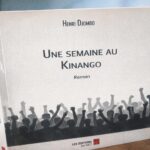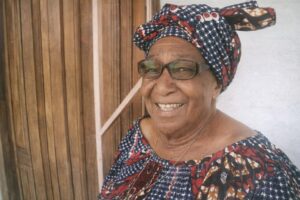Books back in the spotlight
Piles of brightly jacketed novels welcomed students at the gate of Marien-Ngouabi campus this week, the latest stop on a nationwide tour led by Editions L’Harmattan Congo. The Brazzaville publisher wants to put printed words back into young hands before scrolling replaces reading completely.
Their new campaign, headline message: ‘A book is a passport’, arrives amid what the house’s deputy managing director Appoliange Josué Mavoungou calls a global ‘crisis of reading’ (L’Harmattan Congo). The initiative intends to meet teenagers where they gather, in classrooms and lecture theatres, not only in bookstores.
A generation distracted by screens
In Pointe-Noire or Oyo, lunchtime conversations more often orbit TikTok trends than poetry anthologies. National teachers confide that some first-year students struggle to name a single Congolese novelist, a gap widened by cheap data bundles and the dopamine hit of perpetual notifications.
Books still exist, they insist, but lack the aura of urgency carried by a vibrating phone. L’Harmattan Congo wants to reverse that perception by turning literature into an event again, complete with photo booths, live readings and social-media hashtags encouraging selfies with library cards.
Authors meet students in person
The flagship format, branded ‘Rencontre Auteurs-Étudiants’, literally drives writers to campuses in a minibus stacked with their latest titles. Once seated in an amphitheatre, novelists answer rapid-fire questions about inspiration, earnings and writer’s block, demystifying a profession often viewed as distant.
During the stop at the Université internationale de Brazzaville, management even allowed students to borrow books on credit, a small logistical tweak that doubled evening footfall in the reading room, according to campus librarian Clarisse Ngoma, who smiles at ‘lines longer than the photocopier queue’.
For many first-timers the real discovery is that authors look like ordinary neighbours. ‘When they realise I ride the same bus, they figure writing might be reachable,’ jokes poet Henri Ndinga, whose verses on urban nightlife appear in the collective volume Chronique de la Jeunesse Congolaise.
Numbers that tell a story
Last year the publisher’s youth prize attracted more than 1,000 manuscripts from five towns, awarding ten budding writers with contracts and workshops. The resulting anthology now circulates in municipal libraries, where staff report that copies are ‘rarely on the shelf more than a day’.
Officials at the Ministry of Culture, observing the pilot’s momentum, have echoed calls to reintroduce structured reading hours in secondary schools, though no formal plan has been released. In the meantime, L’Harmattan Congo finances bus fuel and printed flyers from its own operating budget.
Inside L’Harmattan Congo’s workshop
Behind the storefront on avenue de la Paix, four desktop publishing stations hum late into the night. The imprint publishes more than ten titles a year, most by Congolese authors, alongside translations of continental classics that would otherwise be hard to import affordably.
Royalties follow international standards, explains Mavoungou: writers receive a percentage of every unit sold, paid twice a year. Presentation ceremonies and signing sessions are systematically organised, turning each new book into a mini-festival that can generate media coverage and additional sales momentum.
A public reading corner, painted turquoise and sunflower yellow, sits adjacent to the warehouse. Any passer-by can sit, flip through a collection and sip ginger tea brewed by volunteers. ‘We try to keep the barrier to entry literally at zero,’ says communications officer Prisca Louamba.
From prizes to publications
Motivation remains central. Winners of the Grand Prix Littéraire de la Jeunesse not only saw their poems printed; they also underwent mentoring sessions on editing, copyright and marketing. Several now host creative-writing clubs in their former high schools, multiplying the programme’s reach without extra expenses.
One of them, eighteen-year-old Mireille Bongho, recalls being ‘terrified of blank pages’. Today her verses about Pointe-Noire’s port whistles gather thousands of likes on Instagram, where she tags #JeLisCongo. She plans to study law but already budgets time to finish her first novel draft.
Next stops and practical info
The roadshow continues toward Dolisie, Gamboma and Owando before returning to Brazzaville in August for a culminating youth book fair. Entry will be free; students need only present a school ID to receive a ‘passport lecture’ booklet designed to track the titles they complete.
Organisers say the fair will feature slam contests, second-hand stalls starting at 500 CFA francs and a mobile app with maps to public libraries. Corporate sponsors, including a telecom operator, are finalising bandwidth vouchers so visitors can download classic PDFs without data charges.
Mavoungou summarizes the spirit in one sentence: ‘If you can make a hit dance trend viral overnight, you can also make a poem travel just as far.’ For thousands of Congolese students, the bookmark might soon rival the smartphone as their favourite pocket accessory.
Teachers interested in hosting a stop can write to jeunesse@harmattan.cg; the team promises an answer within 48 hours and provides books at symbolic prices for school libraries.






















